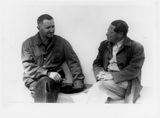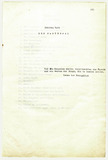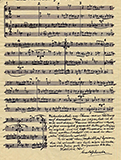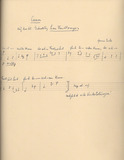Klaus Modick: Sunset, novel (2011)
Klaus Modick: Sunset, novel (2011)
Die Freunde und Gefährten des Exils sind längst nach Europa zurück gekehrt. Brecht, Eisler, Chaplin, Thomas Mann. Döblin. Oder gestorben. Heinrich Mann, Franz Werfel. Begraben unter Palmen. Und Brecht. Staatsbegräbnis im Sand von Berlin.
[The friends and companions of exile have long since returned to Europe. Brecht, Eisler, Chaplin, Thomas Mann. Döblin. Or have died. Heinrich Mann, Franz Werfel. Buried under palms. And Brecht. A state funeral in the sand of Berlin. (ed. trans.)]
Klaus Modick, Sunset, 2011
In his novel Sunset, Klaus Modick deals with the friendship between the writers Lion Feuchtwanger and Bertolt Brecht. The narrative begins with the news of Brecht’s death and the invitation to his funeral, which reach Feuchtwanger in his villa in California. This is followed by Feuchtwanger’s recollection of the various episodes of the friendship. He recalls the beginnings of his fatherly relationship with the young, upcoming writer. He reflects on the shared suffering of emigration and thinks about deserted libraries and disputes with other companions. The stations of their exile at which he and Brecht intermittently lived together, such as Sanary-sur-Mer and Los Angeles, are called to life by the successful author who emigrated from Germany in 1933.
Sunset is at once documentary and fiction. Modick, who wrote his doctoral thesis on Feuchtwanger in 1980, mingles established facts with invention from the life of the emigrant. Numerous personalities from the Californian exile, such as Arnold Schönberg, Hanns Eisler, Thomas Mann, as well and Franz Werfel, also become protagonists of the novel. Drawing on verbal and written sources attributed to Feuchtwanger, Brecht or Arnold Zweig, Modick composes a literary game on the boundaries of fact and fiction that he shares with a number of his colleagues. Writer Michael Lentz also dealt with the Californian exile in his novel Pazifik Exil. Past and present also enter into a lively dialogue in this work, so that the treatment of exile obtains a special topicality that also raises questions about the migration of artists in the present day.







